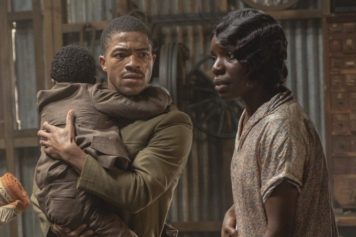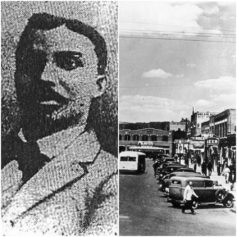
Schools are the key to the future of the Black community, but not just any schools. To ultimately guarantee our success, Black people must fund and support Black-owned and operated educational institutions. This means seizing control of the educational process of our children, guiding the development of young Black minds to act in the interests of the Black community, and securing our liberation in the process. Who else will do it, and why would they? And why should we search for a savior, a superman or superwoman to solve our problems and make it right, when we are the heroes we have been waiting for in the first place?
History is replete with examples showing the benefits of Black-owned schools. As Dr. Amos Wilson so eloquently said, “The function of education is not jobs. That is not the primary function … The primary function of education is to advance the interests of a people and to protect their interests, to secure their survival. The educational structures and institutions of this country are as much a part of its defense of its armed forces as are its soldiers,” he said.
“Afrocentric education…is preparing our children to defend the very lives of African people. It is a military preparation, and a preparation for war,” Wilson continued. “For if you do not survive, what does it matter if you teach reading to 100 percent of our children, or they learn math well, or they learn computer science or all the other things you think are important, when your very lives are in the balance, and it is very likely they will be snuffed out in the next 10 to 20 years? And yet, we still continue to look at schools and colleges and universities as vocational institutions.”
In his book, Awakening the Natural Genius of Black Children, Wilson discussed the role of white supremacy in the education of Black children. He argued that the primary purpose for educating Black children was servitude, for maintaining white supremacy. And so Wilson believed that for all the education a Black person may have, it is of no use to the interests of Black people if that individual is acting in white interests.
We have seen the benefits of education when a community places itself and its children at the center. Consider the 2015 Gallup survey which found that Black graduates of HBCUs are more likely than Black alums of predominantly white institutions to be thriving in various areas of their lives, including their financial, social and physical well-being and sense of purpose. And according to The Network Journal, “HBCUs are responsible for 22 percent of current bachelor’s degrees granted to Blacks. Among Blacks, 40 percent of all congressmen, 12.5 percent of CEOs, 40 percent of engineers, 50 percent of professors at non-HBCUs, 50 percent of lawyers and 80 percent of judges are HBCU graduates. The top 21 undergraduate producers of Blacks with doctoral degrees are HBCUs.” Further, as Inside Higher Ed reported, in recent years HBCUs created more Black Ph.D.’s than any other institutions.
Atlanta Black Star has created the Better School Better World Challenge, a campaign in which Black-owned businesses challenge each other to donate at least $100 to Black educational institutions that are incubators and training grounds for the leaders of the future. Professionals and other concerned citizens are welcomed to join the challenge at any donation level.
The Better School Better World Challenge is an initiative of the Black Star Economic Alliance (BSEA), a consortium of Black-owned and operated businesses whose purpose is to recycle resources within the alliance. The BSEA plans to accomplish this by having each member commit to spending a certain percentage of its annual revenue on goods and services from other alliance members. The goal of the alliance is to create and support institutions of social uplift to the Black community, bringing dramatic changes to where we live and improving our economic, political and educational systems.
Why is all of this important? We all look back at the legacy of Black Wall Street, of Black-owned businesses, institutions, schools and systems as a source of pride. But that source of pride is also a means of survival and a key to our future success. Black Wall Street worked because of the recycling of Black dollars in the community, a pattern and practice that is time-tested, and something we are reclaiming. Typically, in our community today, our dollars leave in 6 hours, while a dollar stays in the Asian-American community for 28 days, and 19 days in the Jewish community.
Meanwhile, we know that education is the most crucial ingredient for liberation, and the tool for building and sustaining a nation — the type of nation we want and require. But to create a Black community that serves our needs, we need to shape Black minds that will act in service to our community. This is why Black people must fund and own their educational institutions. Click the link to support the #BetterSchoolBetterWorld Challenge.


